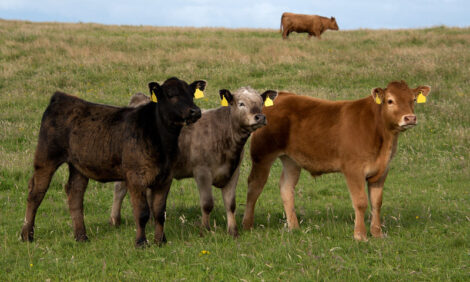



Live Export Debate - What's Best for Animal Welfare?
ANALYSIS - Pressure is mounting in Australia to end the live export trade, but would this have an ever more devastating effect on animal welfare, asks Charlotte Johnston, TheCattleSite editor.This trade brings in A$1.8 billion annually to the Australian economy, but also creates over 13,000 jobs.
The increase in support for a live trade ban has been fuelled by a number of welfare issues in importing countries.
The situation began, when in April 2011, undercover footage of Indonesian slaughter houses showed severe mistreatment of Australian cattle.
Earlier this year, a combined industry and government effort developed the Exporter Supply Chain Assurance System (ESCAS) - which demands exporters supply evidence that livestock will be handled in accordance with internationally accepted World Organisation for Animal Health (OIE) standards.
Despite this, unrest amongst the public continues.
In the last week, hundreds of the public have gathered across the country to protest against live exports, after video footage showed Australian sheep being inhumanely killed in Pakistan.
Thirty thousand cattle have been held in an Egyptian feedlot for almost two months after some were found to have hormone growth promotant implants. This week, Egyptian authorities have now decided that cattle without implants can be processed immediately, and those with implants can be slaughtered 60 days after the implants have been removed.
“Forcing Australia out of the live trade would be counter-productive, cutting off a valuable source of protein to the world and undermining attempts to improve animal welfare standards in these developing nations,” said Victoria Farmers Federation Livestock President, Ian Feldtman.
However, the World Society for the Protection of Animal has called on the federal government to back the immediate construction of a large processing plant in North Australia in a bid to reduce live exports.
A report due to be released by the animal welfare organisation is expected to focus on the benefits for cattle producers and local communities in switching to an industry centred on producing frozen and chilled "boxed" beef for export.
Whilst animal welfare groups, the public and politicians call for a live export ban, the larger part of the Australian cattle industry is standing firm. AgForce General President, Brent Finlay, said despite some isolated incidents in the Middle East, Australia was helping to ensure positive welfare outcomes for exported stock and must be involved in the trade to continue this work.
“Destructive behaviours aimed at shutting down the industry will only end in countries with little regulation filling market requirements, ultimately creating broad scale animal welfare disasters.”
The debate is a tricky one, is the job Australia is doing of improving animal welfare good enough? If they weren't to do it, who would, and would the prospects for animal welfare deteriorate?



